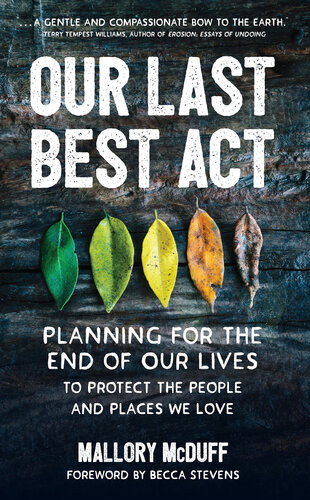

Most ebook files are in PDF format, so you can easily read them using various software such as Foxit Reader or directly on the Google Chrome browser.
Some ebook files are released by publishers in other formats such as .awz, .mobi, .epub, .fb2, etc. You may need to install specific software to read these formats on mobile/PC, such as Calibre.
Please read the tutorial at this link: https://ebookbell.com/faq
We offer FREE conversion to the popular formats you request; however, this may take some time. Therefore, right after payment, please email us, and we will try to provide the service as quickly as possible.
For some exceptional file formats or broken links (if any), please refrain from opening any disputes. Instead, email us first, and we will try to assist within a maximum of 6 hours.
EbookBell Team

4.3
8 reviewsAs we begin to contemplate death and to embark on practical planning for life's end, many of us long to leave a legacy beyond a transfer of money and property—one that ensures a sustainable earth for our loved ones, our communities, and generations to come. But where do we even begin?
With the sudden deaths of both of her parents, Mallory McDuff found herself in a similar position. Utterly unprepared both emotionally and practically, she began to research sustainable practices around death and dying, determined to honor their commitment to caring for the earth. For McDuff, an educator and environmentalist, what started as a highly personal endeavor expanded into a yearlong exploration and assessment of green burials, aquamation, green cemeteries, home funerals, and human composting.
In Our Last Best Act, McDuff bridges the gap between environmental action and religious faith by demonstrating that when the two are combined, they become a powerful force for the greater good. Full of practical information and support, this book equips readers to make decisions for their own end-of-life planning. In a world experiencing a climate crisis and a culture that avoids discussions about death and dying, this book opens the conversation about the choices we make—and how it's possible for our death to honor our values, create a sustainable legacy, and help to heal the earth.